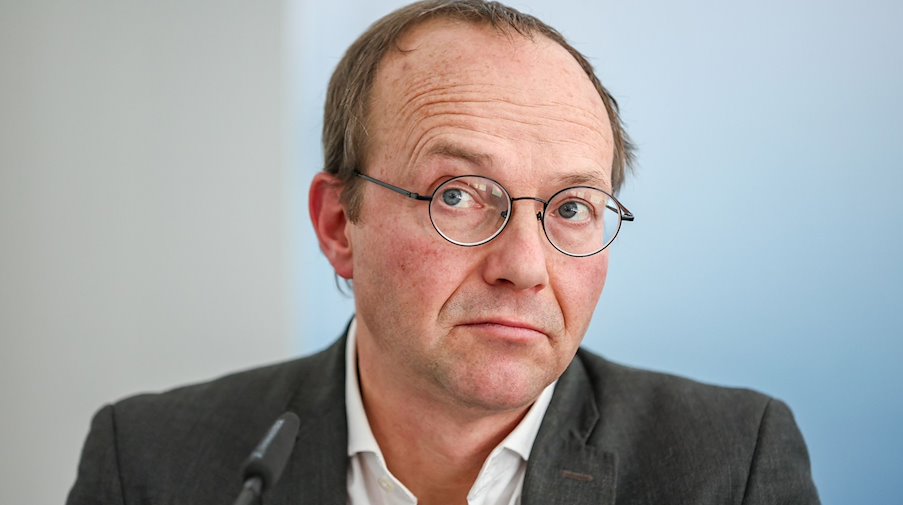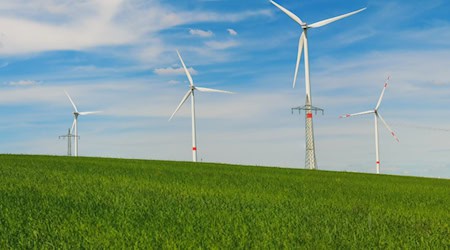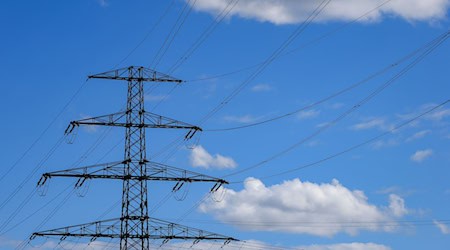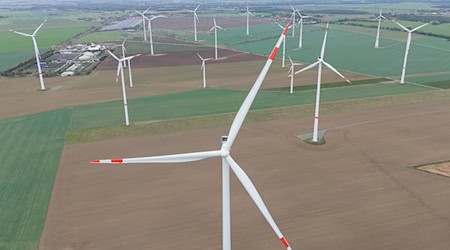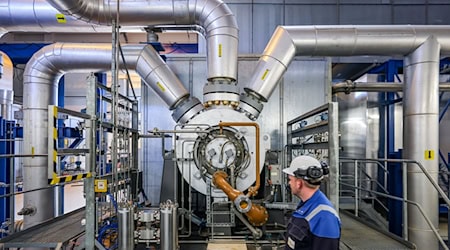Saxony's Energy and Environment Minister Wolfram Günther (Greens) believes that the expansion of renewable energies in the state is a key issue. "The economy urgently needs green electricity. The question of whether we remain an energy and industrial state, whether we attract investment, depends on the expansion of renewable energies," he told the German Press Agency in Dresden. In addition, electricity from wind and solar would permanently reduce energy prices.
Günther also believes that the federal government's targets are feasible. "We want to achieve the two percent target in Saxony five years ahead of schedule, namely in 2027. The federal government has set 2032. We want to be faster. We have pushed this through in the coalition." According to the federal government's specifications, two percent of the state's land area should be available for wind turbines in future. By 2027, 1.3 percent must be designated as an intermediate step. Currently, only 0.2 percent is available in the state. Günther blames the previous governments in Saxony for this. "The expansion of renewables, especially wind energy, was systematically blocked and slowed down in Saxony for years. Until recently, wind turbines were publicly described by some as a threat to the lignite industry." Yet it had long been clear where the world was heading - towards climate neutrality and 100 percent green electricity. "These are lost years for Saxony. But we are catching up. We have changed course in this legislature, from preventing to enabling," emphasized Günter. The expansion of wind energy is progressing, from "very little expansion to a clear upward curve". "We are seeing a highly dynamic expansion in photovoltaics. This is also due to the many rooftop solar systems. The energy transition has arrived on people's roofs. Our funding program for balcony power plants has been very well received." There is great momentum in the approval of wind power plants and ongoing approval procedures.
This week, the German Wind Energy Association complained that Saxony was still lagging behind other federal states in terms of expansion. Together with Bavaria, Thuringia and Baden-Württemberg, the Free State is one of the states with the lowest capacity additions in 2023, it announced together with the VDMA Power System association on Tuesday.
According to the ministry, ten larger wind turbines with a capacity of more than 46 megawatts will go into operation in 2023. This roughly corresponds to the private electricity consumption of 50,000 people. In percentage terms, the increase in turbines was around 3 percent. In the first three quarters, 24 systems with a total output of around 140 megawatts were approved, which would roughly cover the private electricity consumption of 180,000 people. A total of 85 plants with an output of more than 480 MW are in the approval process. In comparison: in 2020, just nine turbines with a total of 39 megawatts were approved in Saxony. According to Günther, modern wind turbines generate many times more electricity than turbines from 15 or 20 years ago. "Compared to old turbines, the output today is often ten times higher. Fewer turbines supply more electricity," said the Minister. In the photovoltaic sector, plants with an output of over 600 MW were commissioned last year. According to the Ministry, this amounted to more than 47,000 systems. These include many small systems on roofs and garages as well as balcony power plants. Within three months, funding had been approved for 11,000 of these small power plants. "A very important point is that municipalities and citizens are involved in the expansion of renewables. Under the current rules, the municipalities participate voluntarily in the proceeds from the plants. We want to make this mandatory," said Günther. This could bring 20,000 to 40,000 euros per year and wind turbine into the municipal coffers. "If the wind turbine turns on site, money comes in for the local clubs, for the volunteer fire department, for the daycare center."
Copyright 2024, dpa (www.dpa.de). All rights reserved

